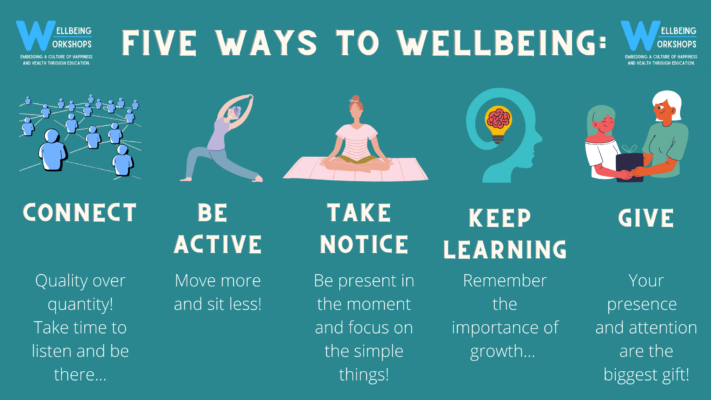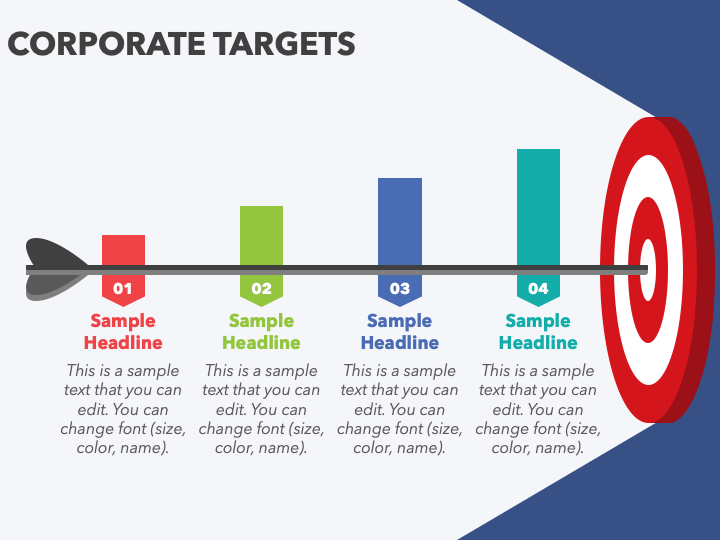Building A Good Life: Strategies For Sustainable Wellbeing

Table of Contents
Cultivating Physical Wellbeing
Physical health forms the bedrock of sustainable wellbeing. Neglecting your physical needs will inevitably impact your mental and emotional state. Prioritizing your physical wellbeing sets the stage for a more vibrant and fulfilling life.
Prioritizing Healthy Habits
Small, consistent changes can significantly improve your physical health and contribute to sustainable wellbeing. These habits are interconnected, creating a synergistic effect on your overall health.
- Regular exercise reduces stress and improves mood: Aim for at least 150 minutes of moderate-intensity aerobic activity or 75 minutes of vigorous-intensity aerobic activity per week, along with muscle-strengthening activities twice a week. Find activities you enjoy – whether it's dancing, swimming, hiking, or simply a brisk walk.
- A balanced diet provides essential nutrients for energy and well-being: Focus on whole, unprocessed foods like fruits, vegetables, lean proteins, and whole grains. Limit processed foods, sugary drinks, and unhealthy fats. Consider consulting a nutritionist for personalized dietary advice.
- Adequate sleep is crucial for cognitive function and emotional regulation: Aim for 7-9 hours of quality sleep each night. Establish a relaxing bedtime routine, create a sleep-conducive environment (dark, quiet, cool), and avoid screen time before bed.
- Consider incorporating mindfulness practices like yoga or tai chi: These practices combine physical movement with mental focus, promoting both physical and mental wellbeing. They can help reduce stress and improve flexibility and balance.
Managing Stress Effectively
Chronic stress significantly impacts physical health, leading to various problems. Effective stress management is vital for sustainable wellbeing.
- Practice stress-reducing techniques like deep breathing and meditation: Even a few minutes of daily practice can make a difference. Numerous apps and online resources can guide you through these techniques.
- Engage in hobbies and activities you enjoy: Make time for activities that bring you joy and relaxation. This could be anything from reading and gardening to painting and playing music.
- Set realistic goals and prioritize tasks: Avoid overcommitting yourself. Break down large tasks into smaller, manageable steps to reduce feelings of overwhelm.
- Seek professional help if needed: Don't hesitate to reach out to a therapist or counselor if you're struggling to manage stress on your own. They can provide support and guidance tailored to your specific needs. Consider cognitive behavioral therapy (CBT) or other evidence-based treatments for chronic stress management.
Nurturing Mental Wellbeing
Mental wellbeing is just as critical as physical health for sustainable wellbeing. A healthy mind allows you to navigate life's challenges with resilience and purpose.
Developing a Growth Mindset
A growth mindset—believing your abilities can be developed through dedication and hard work—is crucial for navigating setbacks and achieving sustainable wellbeing.
- Focus on personal growth and self-improvement: Continuously seek opportunities for learning and development, whether through formal education, workshops, or self-study.
- Embrace challenges as opportunities for learning: View challenges not as obstacles but as chances to grow and learn. Analyze mistakes, identify areas for improvement, and adjust your approach accordingly.
- Practice self-compassion and forgive yourself for mistakes: Be kind to yourself. Everyone makes mistakes; it's how you learn and grow.
- Seek feedback and learn from others' experiences: Actively solicit feedback from trusted sources and be open to learning from others' successes and failures.
Building Strong Relationships
Strong social connections are essential for mental wellbeing and overall sustainable wellbeing. Human connection provides support, belonging, and a sense of purpose.
- Nurture relationships with family and friends: Make time for meaningful interactions with loved ones. Regular communication and quality time strengthen bonds.
- Join social groups or clubs that align with your interests: Connecting with like-minded individuals fosters a sense of community and belonging.
- Practice active listening and empathy in your interactions: Truly listen to and understand others' perspectives. Empathy strengthens relationships and builds trust.
- Seek out mentors or role models: Learning from experienced individuals can provide valuable guidance and support.
Fostering Emotional Wellbeing
Emotional wellbeing involves understanding and managing your emotions effectively. This is a key component of sustainable wellbeing.
Practicing Self-Care
Self-care isn't selfish; it's essential for maintaining emotional wellbeing and overall sustainable wellbeing. Prioritizing your needs allows you to better support others and navigate challenges.
- Engage in activities that bring you joy and relaxation: Make time for hobbies, interests, and activities that rejuvenate you.
- Learn to say "no" to requests that drain your energy: Setting boundaries protects your time and energy, preventing burnout.
- Prioritize self-care activities like taking baths, reading, or spending time in nature: Find activities that help you relax and recharge.
- Practice mindfulness and self-reflection: Regularly check in with yourself to understand your emotions and needs. Journaling can be a helpful tool.
Developing Emotional Resilience
Emotional resilience is the ability to bounce back from adversity. Developing this skill is crucial for navigating life's inevitable challenges and maintaining sustainable wellbeing.
- Practice emotional regulation techniques: Learn techniques to manage difficult emotions like anger, sadness, and anxiety. Deep breathing, meditation, and mindfulness can be helpful.
- Develop a strong support system: Surround yourself with supportive individuals who can offer encouragement and understanding during challenging times.
- Learn from past experiences and adapt to change: Reflect on past experiences to identify coping mechanisms and strategies for navigating future challenges.
- Seek professional help if needed: Don't hesitate to seek support from a therapist or counselor if you're struggling to manage your emotions.
Conclusion
Building a good life, characterized by sustainable wellbeing, requires a holistic approach encompassing physical, mental, and emotional health. By prioritizing healthy habits, nurturing strong relationships, and practicing self-care, you can cultivate a life filled with lasting fulfillment and joy. Remember, the journey to sustainable wellbeing is a continuous process. Start incorporating these strategies today and begin building the life you deserve. Invest in your sustainable wellbeing now and reap the rewards of a happier, healthier future. Prioritize your wellbeing – it's an investment in yourself and your future happiness.

Featured Posts
-
 The Link Between Corporate Targets And Increasing Uk Pet Vet Bills
May 31, 2025
The Link Between Corporate Targets And Increasing Uk Pet Vet Bills
May 31, 2025 -
 Former Dragons Den Star Weighs In Men Should Never Be Allowed In Womens Changing Rooms
May 31, 2025
Former Dragons Den Star Weighs In Men Should Never Be Allowed In Womens Changing Rooms
May 31, 2025 -
 Der Bodensee In 20 000 Jahren Ist Klimaschutz Dann Noch Noetig
May 31, 2025
Der Bodensee In 20 000 Jahren Ist Klimaschutz Dann Noch Noetig
May 31, 2025 -
 Rosita Sweetman And The Shadow Of Oscar Wildes Wife
May 31, 2025
Rosita Sweetman And The Shadow Of Oscar Wildes Wife
May 31, 2025 -
 Full Road Sweeping Schedule Released For Estevan Sk
May 31, 2025
Full Road Sweeping Schedule Released For Estevan Sk
May 31, 2025
